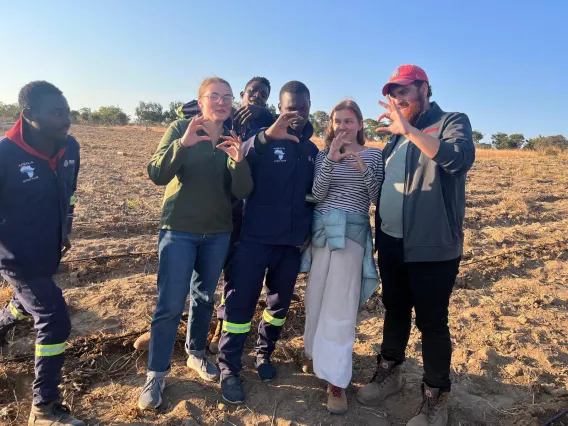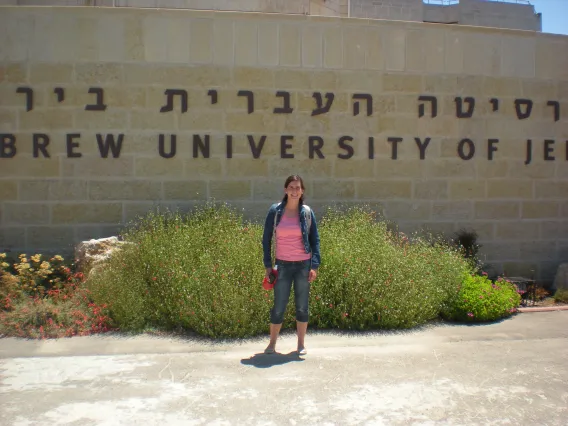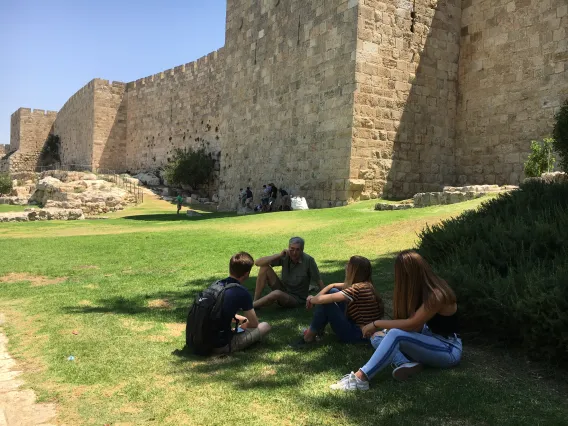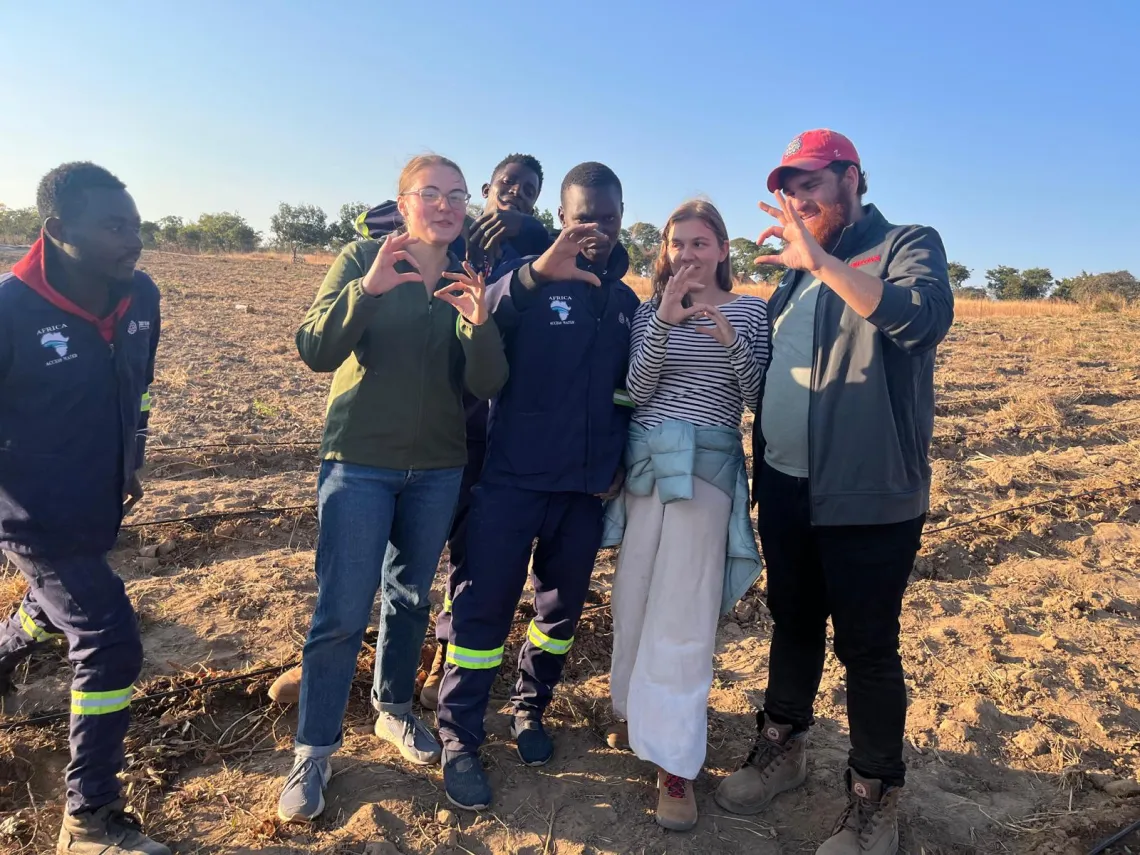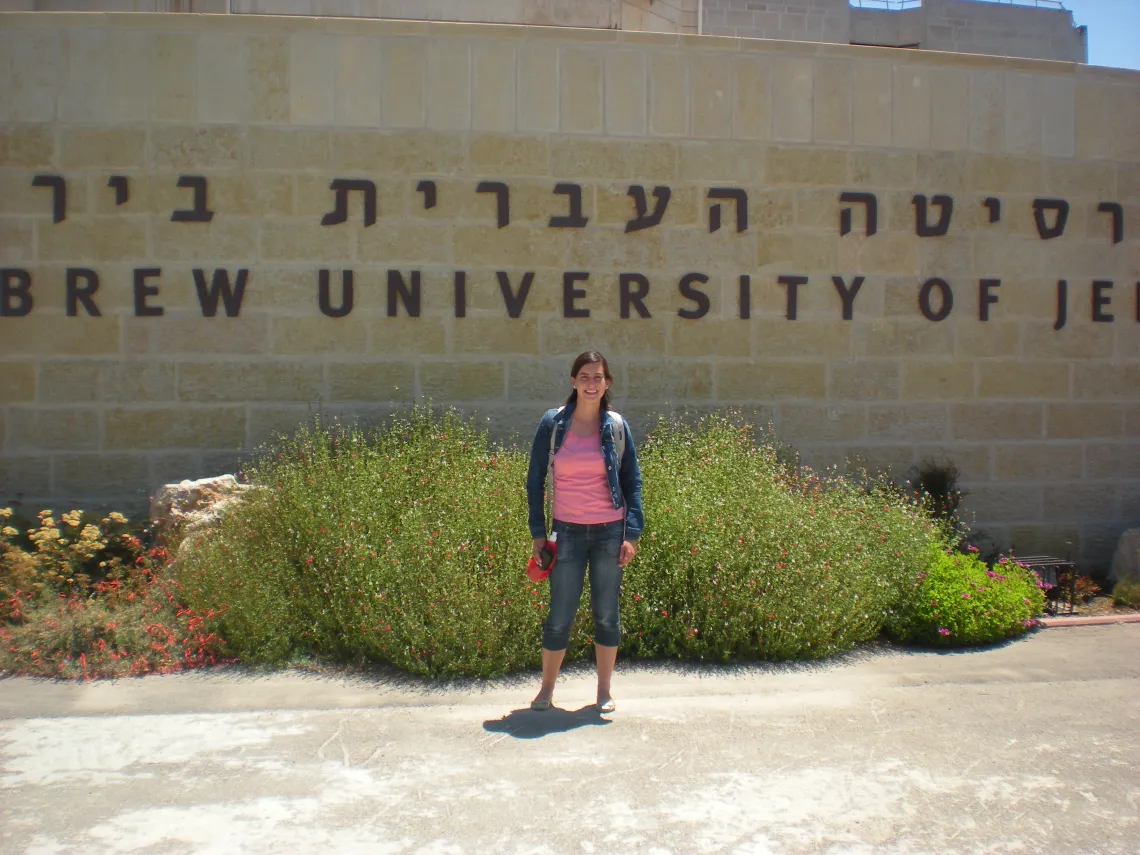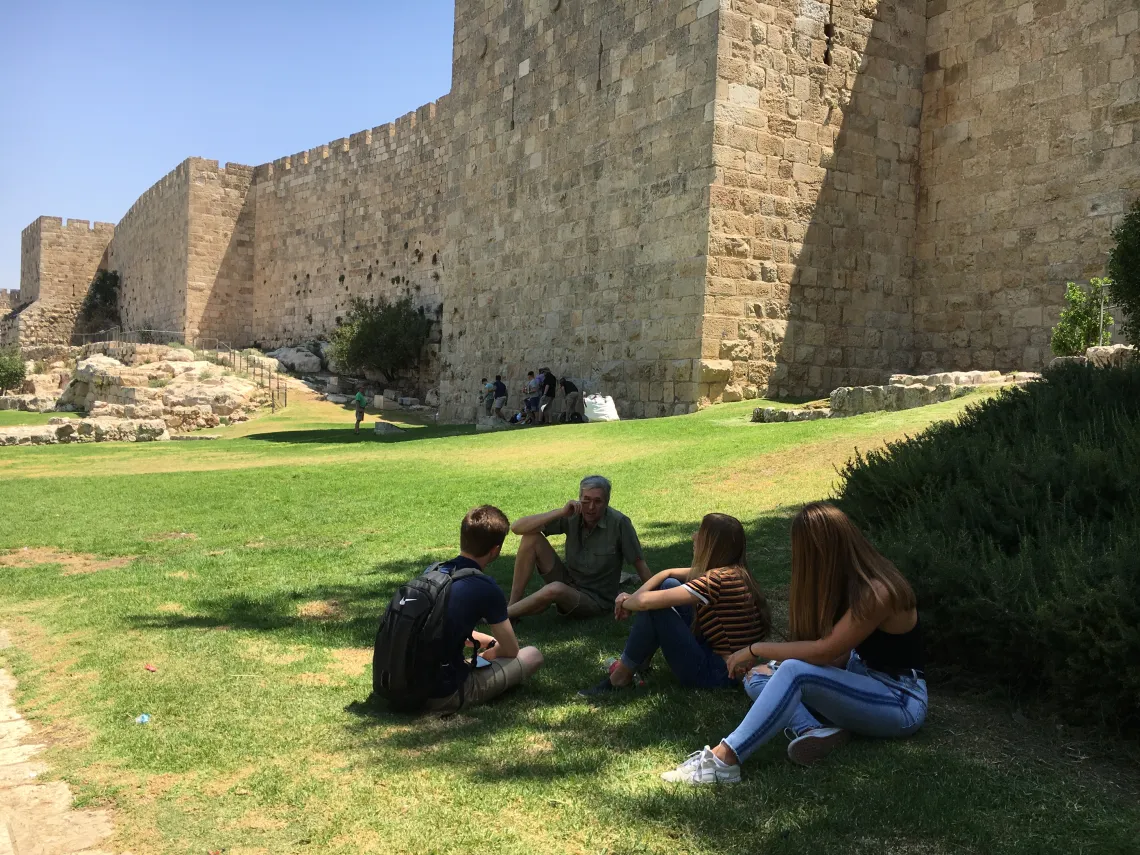The Arizona in Israel – and Zambia Study Abroad program offered by The Arizona Center for Judaic Studies provides a hands-on introduction to Israel’s dynamic society. Israel is a modern country deeply rooted in ancient cultures, and it is situated in one of the world’s most important historical and geopolitical crossroads.
Students will split the month in Israel between Jerusalem and Tel Aviv, and will enroll in credit-bearing courses that incorporate numerous field trips and fieldwork assignments. Throughout the month in Israel, the focus will be on engaging in authentic Israeli experiences and learning about Israel from a wide range of perspectives.
After studying, traveling, and training in Israel, students will travel together to Zambia, where they stay for five weeks. They will train in Lukasa, and then work on a development project in the village of Mphande.
How to Apply
For more detailed information on this program, download our Arizona in Israel and Zambia Information Packet (v. 2024) or contact the Program Director, Prof. Graizbord (dlgraizb@arizona.edu).
*PROSPECTIVE* PROGRAM DATES (subject to minor changes): June 2 - August 6, 2024
- Deadline to Apply: April 1, 2024
- Locations: Israel (Jerusalem & Tel-Aviv) and Zambia (Lukasa & Mphande)
- Program Cost: $13,000 (estimated, as of Nov. 2022)
- SCHOLARSHIPS AVAILABLE
Eligibility for University of Arizona Students
Undergraduates:
- 2.5 GPA. Interested students with lower GPAs should consult with Prof. Graizbord.
- Interview with Prof. Graizbord and/or Prof. Hammer.
- All students must declare a Judaic Studies major or minor prior to beginning summer program. For further information, consult JUS Advisor, Megan Theesfeld, (mtheesfeld@arizona.edu).
Graduates: Consult Prof. Graizbord (dlgraizb@arizona.edu).
Eligibility for Non-University of Arizona Students
- Official transcript from undergraduate or graduate institution.
- 3.00 GPA. Interested students with lower GPAs should consult with Prof. Graizbord (dlgraizb@arizona.edu).
- Letter of reference emailed by referee directly to Prof. Graizbord.
- Non-UArizona students are not eligible for University of Arizona and Judaic Studies scholarships.
- Consult Prof. Graizbord to discuss issues related to course registration.
More Information
This program is taught and directed by faculty from The Arizona Center for Judaic Studies.
Students will be introduced to ancient, medieval, and modern archaeological and historical sites, and they will visit unique collections of Judaic and Near Eastern materials in Israel’s world-renowned museums. They will also be introduced to modern Israeli communities, and to institutions and non-governmental organizations (NGOs), including the Israeli Knesset (Parliament).
Program Cost: $13,000 (estimated, as of Nov. 2022)
Program costs include airfare, sleeping accommodations, and tuition for The University of Arizona courses. Students are responsible for their own meals, other than breakfasts in Israel.
- In past years, The Arizona Center for Judaic Studies has funded at least half of all students' expenses for the Israel segment of the program.
- The Florence Kaiserman Scholarship
- The Ronald and Diane Weintraub Israel Study Award
- Additional JUS Departmental Scholarships
For more information on scholarships and course enrollment, contact Martha Castleberry (marthac@arizona.edu).
*PROSPECTIVE* Program Dates: June 2 – August 6, 2024 (subject to minor changes)
- Orientation and introductory coursework: online or in person at the University of Arizona: June 2 - June 8
- Jerusalem: June 11 - June 24
- Tel Aviv: June 24 - July 8
- Zambia (Lukasa & Mphande): July 8 - August 6
Courses Available For Credit
JUS 301 is intended as an introductory survey and as a gateway to more specialized courses in Judaic Studies. The subject of the course is the Jewish people, one of the oldest nations of the world, whose culture has developed both among and within other cultures as a distinct and relatively continuous whole since Antiquity. Although its content and its precise borders are sometimes difficult to ascertain, "Jewish Civilization" may be defined as the evolving culture--or constellation of related cultures--that the Jews and their Israelite ancestors created and have understood as their collective heritage.
Evolution of the State of Israel from the rise of Zionism in 19th Century Europe to the present. Survey of the origins of the State of Israel from the rise of Zionism in 19th Century Europe to the Declaration of the State of Israel in 1948. Evolution of the State of Israel from 1949 to the present. Emphasis on interactive generative processes and understanding of the interplay between past processes and present socio-political realities.
This course will introduce students to international human rights principles and aspects of transitional justice, while also allowing for them to understand the complexities of Israel and the issues that confront the state. Students will have a unique opportunity to consider the international framework of human rights from an Israeli perspective while attaining a better understanding of Israel internationally. Students will become familiar with the variety of international methods that might assist in moving the region towards a more stable co-existence.
Qualified students working on an individual basis with professors who have agreed to supervise such work.
UA Judaic Studies' Arizona in Israel Program endeavors to apply a scholarly approach, that is, one that prizes objectivity, and thus does not advocate any particular politics or political outcomes with regard to Israel, the Arab-Israeli conflict, or anything else. An important goal of the program is to introduce students to complex realities in Israel by exposing the students to various Jewish, Arab, Druze, and other views and positions whenever possible. Thus, we hope that students will develop the means to develop informed, analytically sophisticated positions concerning various issues and controversies. In their capacity as the Program's Directors, the AII faculty work neither for/with the Israeli government nor for/with the Palestinian National Authority, nor with/for any other governmental entity; rather, we endeavor to hear from representatives of several such entities, as well as from various civil society groups as well as from scholars and unaffiliated individuals.


